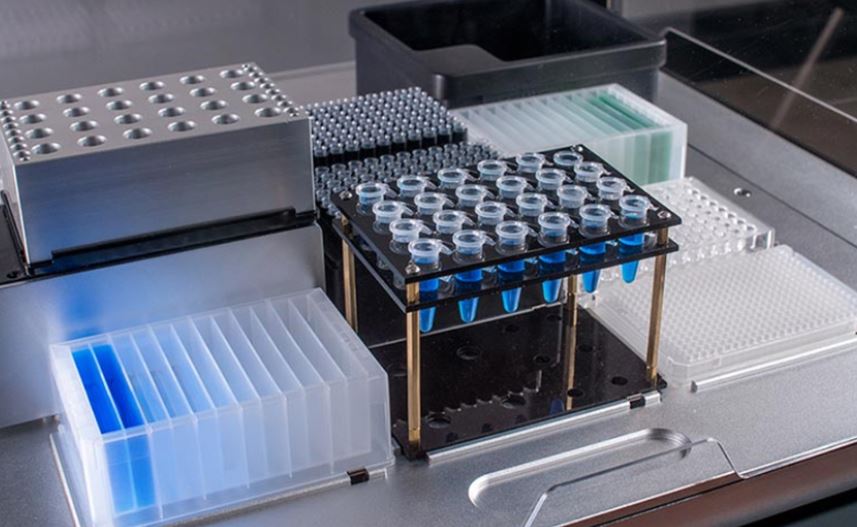
Línea Directa helps to buy 13 robots to perform one million covid tests per month
• The insurance company is a pioneer in its sector in working with the public-private COVIDRobot initiative, which aims to increase the capacity of public hospitals throughout Spain to perform massive PCR and antibody testing.
• The measure is in addition to the numerous actions put in place by Línea Directa during the COVID-19 crisis to further strengthen its commitment to society in this pandemic.
Madrid, 20 May 2020. - As part of its commitment in the fight against COVID-19, Línea Directa Aseguradora has joined the COVIDRobot initiative to provide Spanish public hospitals with greater processing capacity for antibody and PCR samples.
This makes the insurance company the only company in its sector participating in the public-private partnership to buy 13 powerful robots that will multiply the ability of health centres to carry out COVID tests by six, with capacity for almost one million tests per month.
Each of the automated stations comprises eight robots, which can be arranged in different working modules. In addition to their ability to perform 2,400 analyses each per day, the advantages of the devices include their open-source approach, which means that laboratories can use any brands of reagents, pipettes and kits, including those they make themselves.
The robots are manufactured in China. Once they arrive in Spain in May (with the first consignment arriving today, 20 May, at the Inditex logistics hub at Zaragoza airport), they will be installed in the selected hospitals. This initiative, known as COVIDRobot, will also provide commissioning and maintenance services for the equipment for one year.
The COVIDRobot project was launched in March through a public-private partnership combining the efforts of government, companies and individuals to get essential equipment for the fight against the pandemic now and over the coming months to Spain immediately and responsively. In the first phase, four robots have been installed in four hospitals in Madrid and Barcelona, resulting in a very significant increase in task automation.
In this second phase, in which Línea Directa Aseguradora is involved, the 13 robots are expected to be distributed to major public hospitals in Galicia, Cantabria, the Basque Country, Catalonia, Valencia, the Balearic Islands, Madrid, Extremadura, Andalusia and the Canary Islands.
Miguel Angel Merino, CEO of Línea Directa CEO, said: "Línea Directa wants to contribute to this great public-private collaboration initiative with leading hospitals, giving them mass testing capacity for COVID-19. We think what we need as a country is the ability to perform massive virus and antibody screening as soon as possible. These 'super robots' will multiply the capacity of these hospitals. I am very proud that Línea Directa is involved in this project, once again demonstrating our leadership and our social commitment."
The insurance company is involved in a fund for the purchase of automated stations and their installation and support. This also features other companies, such as Merlin Properties, Endesa, Banco Santander, Experis from the ManPower Group and Telefónica, in addition to entrepreneurs in a personal capacity, Santiago de Compostela's Fundación Instituto de Investigación Sanitaria, Fundación Profesor Novoa Santos and employees from Auren. Inditex handled the distribution logistics for the robots, using its international logistics network, working with Ceva Logistics, supported by the LLYC communication consultancy.
Import and customs procedures were facilitated by the Ministry of Science and Innovation through the Carlos III Institute of Health. The Ministry of Finance and the Ministry of the Interior also contributed. At the regional level, the public health services of Galicia, Extremadura, Andalusia, the Balearic Islands and the Canary Islands were also involved, together with the government of the Valencia region and the vice presidency of Cantabria.
The COVIDRobots project is being led by five professionals from different fields: Rocío Martínez, Senior Group Researcher at King's College London; Andreu Ves, research professor and internet pioneer; María Parga, Chairman of Alastria, Javier Colás, Head of Innovation at the ESADE Business School's Health Care Institute; and Sandra Figaredo, Senior Communication and Public Affairs Consultant at LLYC.